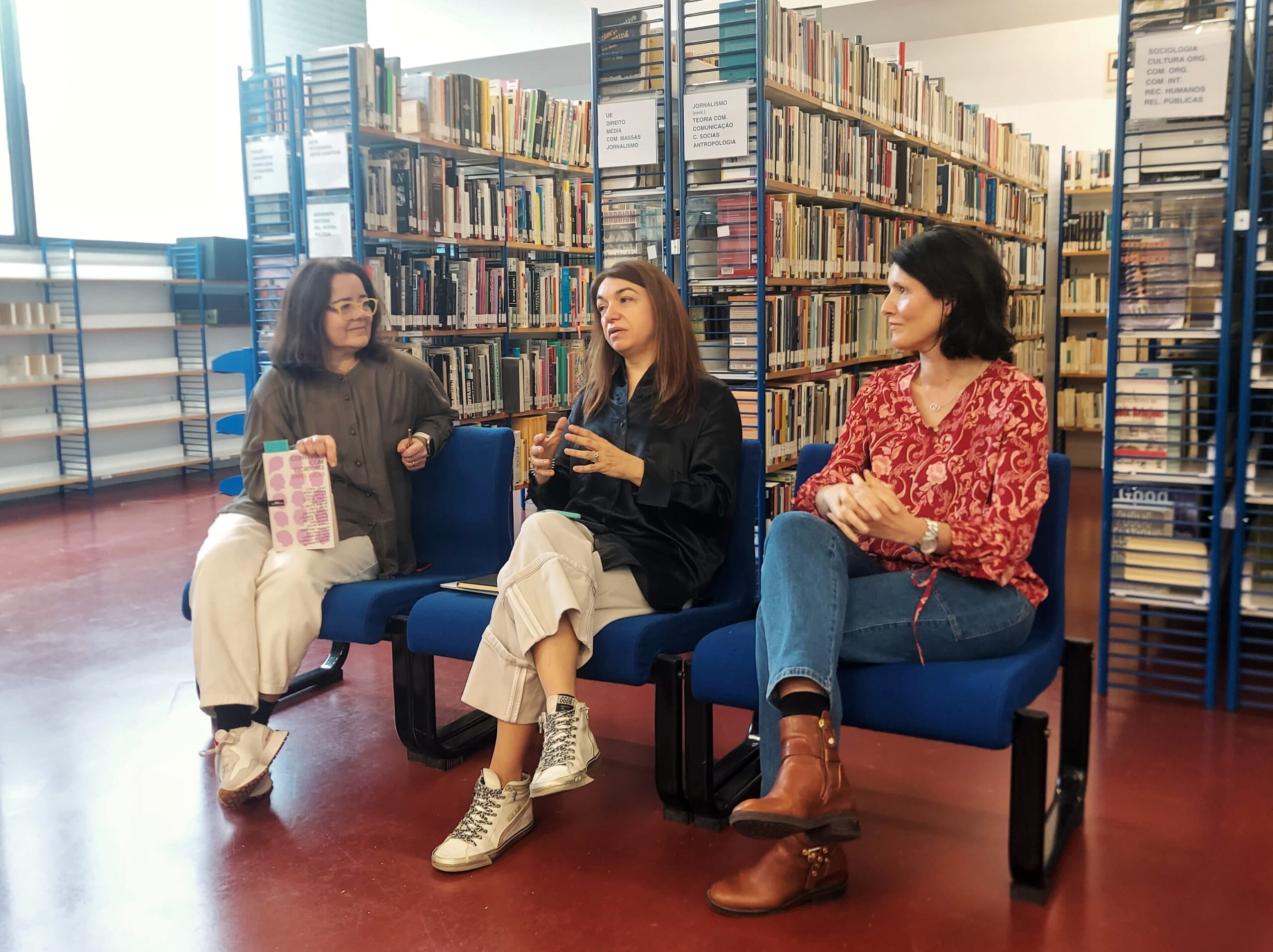“Portuguese as a language of travel”: Isabel Lucas in celebration of World Portuguese Language Day
On May 5, the library of the School of Communication and Media Studies (ESCS), of the Polytechnic University of Lisbon (IPL), hosted the conference “Portuguese as a language of travel”, as part of World Portuguese Language Day, celebrated on that same date.
The guest speaker was Isabel Lucas, journalist, literary critic, professor at ESCS and author of books such as Conversas com escritores, Viagem ao sonho americano e Viagem ao país do futuro, published by Companhia das Letras.
Reflecting about the Portuguese language as a vehicle for dialogue, citizenship, education and social appreciation, Isabel Lucas began by saying that on her travels she pays close attention to the language, which “requires listening” and “capturing the nuances”.
“To use a language is to be in relation,” said the writer. “When we are in other countries, that sense of being in relation becomes very clear,” she continued, referring to the trips she made to the United States and Brazil to showcase those countries through some of their most recognized writers.
As for the Portuguese language, Isabel Lucas considers it “a language of travel.” Referring to The Lusiads (Os Lusíadas), by Camões, which “was born from the celebration of a journey,” the author recalls that the Portuguese language “traveled,” “it left its own words [in other countries] and took in others,” and continues to incorporate new words every day.
Regarding the way the Portuguese language is used today, the writer says that, above all, she thinks it’s important and interesting to ask why there are differences.
Regarding the so-called “crutches” – such as “like” and “literally” –, the guest says she gets a bit “irritated,” as she sees them as a form of “mental laziness.” But she is more concerned about the tendency toward “taking the easy way out”, the use of “formulas” in which language is no longer being “worked on or thoughtfully used.”
From this point on, the discussion was opened up to the more than 30 people present at the session, including members of the IPL and ESCS presidency, students, teachers and other IPL staff.
This was the 4th session of the EntreLinhas Reading Club (ESCS-IPL), organized jointly with the LEReduca Reading Club, of the Lisbon School of Education (ESELx-IPL), and CLiC, the Centre for Languages and Culture, also from IPL.
The moderators were Fernanda Bonacho, from ESCS-IPL, and Antónia Estrela, from ESELx-IPL.


